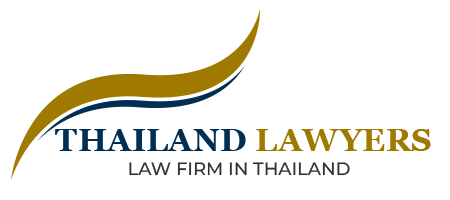Property Leasehold in Thailand. In Thailand, leasehold property represents a legally recognized alternative to ownership, particularly for foreign nationals, who are generally prohibited from owning land under the Land Code B.E. 2497 (1954). Leasehold structures are widely used in residential developments, commercial projects, and foreign-invested enterprises, providing long-term land or building usage without conferring freehold ownership.
Although leasing appears straightforward, Thai lease law contains nuances in formality, duration, transferability, and enforceability. Legal leasehold rights derive from the Thai Civil and Commercial Code (CCC) and must comply with strict registration and procedural requirements to be enforceable for terms beyond three years or in case of legal disputes.
This article offers a detailed legal and practical analysis of leasehold property in Thailand, including lease types, registration rules, leasehold vs. ownership rights, foreign lessee considerations, and legal risk mitigation.
1. Legal Framework for Leasehold Property in Thailand
1.1 Governing Law
-
Civil and Commercial Code (CCC) — Sections 537–571 govern hire of property
-
Land Code B.E. 2497 (1954) — Restricts foreign land ownership
-
Ministerial Regulations issued by the Ministry of Interior
-
Land Department regulations for lease registration
2. Nature of a Leasehold Right in Thai Law
A lease in Thailand is not a proprietary interest in land; it is a personal right (or “right of hire”) granted by the lessor to the lessee to use the land or property for a fixed term in exchange for rent.
| Feature | Leasehold Right |
|---|---|
| Type of right | Personal contractual right (not real right) |
| Title | Land remains under the lessor’s name |
| Term | Maximum 30 years (renewable by new contract) |
| Transferability | Only if expressly agreed in the lease |
| Inheritance | Not automatically inheritable (unless stated and registered) |
3. Maximum Lease Terms and Renewals
3.1 For Private Individuals
-
Maximum 30 years, renewable by entering into a new lease agreement
-
Renewals are not automatic or enforceable unless re-registered
3.2 For Commercial and Industrial Leases (under investment schemes)
-
Under special laws (e.g., Investment Promotion Act, IEAT Act), leases may be registered for up to 50 years, with approval from relevant agencies
-
Applicable for:
-
Hotels
-
Factories
-
Industrial estates
-
BOI-approved projects
-
4. Lease Registration Requirements
4.1 Legal Formalities
To be legally enforceable for more than three years, a lease must be:
-
Made in writing
-
Signed by both parties
-
Registered at the Land Office (for immovable property)
Failure to register a lease longer than three years results in it being enforceable only for three years, per CCC Section 538.
4.2 Land Office Registration
-
Location: Provincial or District Land Office where property is located
-
Required documents:
-
Title deed (Chanote)
-
ID/passports of lessor and lessee
-
Lease agreement (in Thai or bilingual)
-
Power of attorney (if applicable)
-
-
Registration fee: 1% of total lease value (rent x years)
-
Stamp duty: 0.1% of total lease value
5. Legal Protections and Limitations
| Aspect | Legal Position |
|---|---|
| Security of tenure | Lessee has possession during the term; protected under CCC |
| Subleasing/Transfer | Only allowed if clearly permitted in lease agreement |
| Mortgage of lease | Lessee cannot mortgage leased property |
| Breach by lessor | Lessee may sue for damages or performance (contract law applies) |
| Sale of land by lessor | Lease remains valid and binds new owner (if registered) |
The lease runs with the property, not the lessor personally, only if registered at the Land Office.
6. Leasehold Structures Commonly Used in Practice
6.1 Long-Term Lease + Superficies
-
Lessee holds lease over land and ownership of the building
-
Superficies registered to permit foreigner to own the villa or structure
-
Building is separate legal property from land
Common in villa developments marketed to foreigners
6.2 Tripartite Structures: Lease + Option to Renew + Shareholding
-
Used in upscale developments
-
Combine 30-year lease + option to renew + partial ownership in management company (sometimes)
-
Legally complex, must avoid nominee shareholder structures
6.3 Lease in Thai Spouse’s Name
-
Foreign spouse leases land from Thai spouse
-
Lease may be voided as a sham transaction unless clearly separate and commercial
Must demonstrate real rent payments and commercial terms to avoid legal challenge under Section 1469 of CCC.
7. Leasehold vs. Freehold: Legal Comparison
| Factor | Leasehold | Freehold (Chanote) |
|---|---|---|
| Ownership | Lessee has use right only | Full ownership of land and structures |
| Duration | Max 30 years (renewable) | Unlimited |
| Resale Rights | Can assign if lease allows | Freely transferable |
| Inheritance | Not automatic; depends on agreement | Transferable by will or intestate succession |
| Mortgageability | Cannot be used as collateral (typically) | Can be mortgaged |
| Foreign Access | Widely used by foreigners | Not generally permitted for land ownership |
8. Common Leasehold Disputes
| Dispute Type | Legal Consideration |
|---|---|
| Unregistered lease | Only enforceable for 3 years |
| Lessor sells land without disclosure | Registered leases remain binding on new owner |
| Non-renewal at end of term | Renewals are not enforceable unless executed and registered |
| Inheritance of lease | Requires clear succession clause and registration |
| Sublease disputes | Sublease unenforceable without express permission |
Always conduct due diligence on land title, encumbrances, and lessor’s legal capacity before signing.
9. Taxation and Fees on Leasehold Property
| Tax/Fee | Rate or Basis | Responsibility |
|---|---|---|
| Lease Registration Fee | 1% of total rental value | Usually shared or by lessee |
| Stamp Duty | 0.1% of total lease value | Lessee |
| Withholding Tax (if lessor is company) | 5% of rent amount | Lessee withholds, remits |
| Property Tax | Land and Building Tax Act B.E. 2562 | Paid by lessor, unless agreed otherwise |
Long-term leases may be subject to specific business tax if the lessor is in the business of leasing.
10. Best Practices for Lease Agreements
-
Use a bilingual lease contract, signed by both parties
-
Include:
-
Clear lease term and renewal terms
-
Use rights (residential, commercial)
-
Sublease, assignment, inheritance clauses
-
Termination conditions
-
Maintenance and utility obligations
-
-
Register lease at Land Office
-
Ensure lease complies with zoning laws and local regulations
Conclusion
Leasehold property in Thailand offers a legal and flexible mechanism for long-term land or building use, especially for foreigners restricted from freehold ownership. However, the lease must be properly structured, registered, and clearly drafted to provide effective legal protection.
Understanding the distinction between leasehold rights and ownership, as well as the registration requirements, tax implications, and risk of non-renewal, is essential for any lessee or investor seeking secure tenure in the Thai real estate market.

